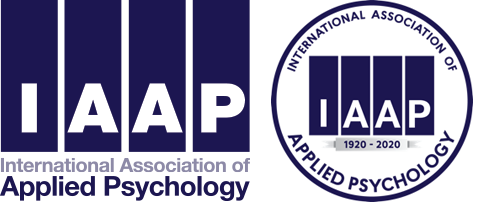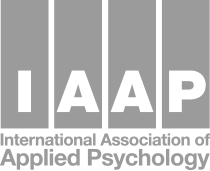Two IAAP Events at the United Nations High-level Political Forum on Sustainable Development
IAAP had two major successful events held July 12 during the important United Nations High-level Political Forum on Sustainable Development.
One event was on the topic of "Building Back Better after COVID-19 through Addressing Health Equity, Mental Health and Well-Being: Contributions of Psychological Science and Practice to Leave No One Behind." The main government sponsor was the Mission of the Republic of Sierra Leone to the United Nations, with co-sponsorship by 14 other governments, and the World Health Organization, and civil society represented by and co-sponsored by IAAP, with the United African Congress (UAC) and APA and the Global NGO executive Committee. The event addressed health equity as critical to "building back better" from the pandemic and the important role psychologists' play in achieving this as well as several SDGs which were being reviewed by governments this year. In this case, the focus was on the intersection between Goal 3 (ensure Health and well-being) and Target 3.4 (promote mental health and well-being) with Goal 10 (reduce inequalities) as well as Goal 17 on multistakeholder partnerships. It was widely acknowledged by participants that the distinction and impressiveness of this event was unparalleled by any side event for this forum that had ever been done before at the United Nations. Indeed, the program, including representations from governments, experts from academia and practitioners from the field, were all outstanding. IAAP's UN NGO representative Judy Kuriansky was the co-organizer and moderator, bringing together an impressive 14 other member states to co-sponsor the event, including Canada, Costa Rica (represented by the Vice President), Ecuador, Georgia, Iceland, Japan, the Kingdom of Bahrain, Lebanon, Mexico, Nepal, Portugal, the State of Qatar, the Republic of Mali, and Sweden, as well as the World Health Organization. The UAC's Gordon Tapper, who has co-organized innumerable stellar events with IAAP at the UN, again formed the core team, joined by members of APA's Policy department and UN NGO representative. The topic of health equity is the Presidential Initiative of APA's President, Jennifer Kelly. IAAP's President Christine Roland-Lévy gave the expert closing remarks. The speaker representation, from regions all over the world, showed outstanding support and commitment from the global community. The experts, and "voices from the field" of those working on the front lines (in Africa, India and Nepal), were selected purposefully to reflect the global overview of psychological research, and importance of paying attention to at-risk and migrant populations, encouraging vaccines acceptance, and the opportunities of new technologies.
View the concept note, program, flyer, and summary.
It is significant that an ECOSOC statement about this event was accepted and is posted. See #4.
The other event, organized by IAAP's UN NGO representative Walter Reichman, and moderated by IAAP's Judy Kuriansky with closing remarks by President Roland-Lévy, was co-sponsored by the Society for Industrial and Organizational Psychology and OrgVitality a psychologically-based management consulting firm. The title of the event was "Achieving Decent Work for Resilient and Sustainable Recovery from COVID19: Contributions for Humanitarian Work Psychology to the Economic, Social and Environmental Dimensions of Sustainable Development." Professor Stuart Carr spoke about the importance of establishing a living wage as opposed to a minimum wage in helping returning workers to maintain a decent life for themselves and their families. Jeffery Saltzman, CEO of OrgVitality spoke about workers' expectations as they return to work. He emphasized they will expect what workers always expect and that is to be treated equitably and with respect and dignity. He pointed out it was the responsibility of a well-managed organization to provide this to their employees as well as to avoid placing undue stress on employees. Therese Fitzpatrick, responsible for implementing the mental health program at the United Nations, elaborated on stress faced by workers, especially at the UN and described the program for maintaining mental health being implemented at the UN. Paul Dommel of IBM elaborated on the need for concern for mental health and pointed out how technology developed in the private sector will be used to help people with mental health issues through diagnosis, treatment and follow- up. Dr. Lori Foster, President-Elect of IAAP, spoke about the need for developing public servants to work to implement the UN 2030 Agenda and the role of behavioral science in achieving that goal. IAAP's Walter Reichman, as the discussant, reminded the delegates to HLPF and the members of the UN Secretariat of the contributions which psychology can make to their efforts to implement the SDGs.

